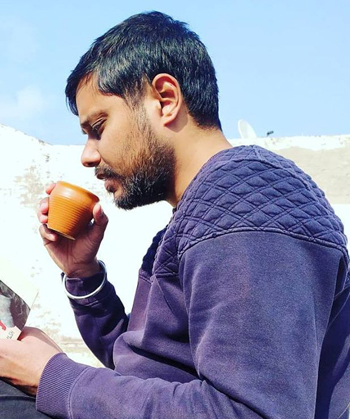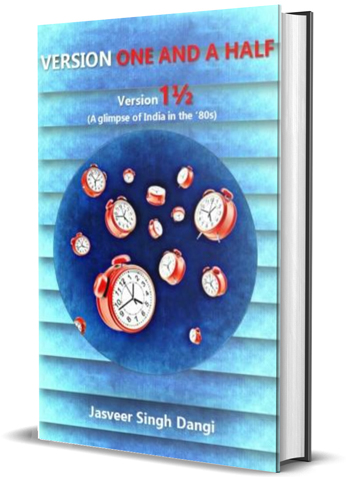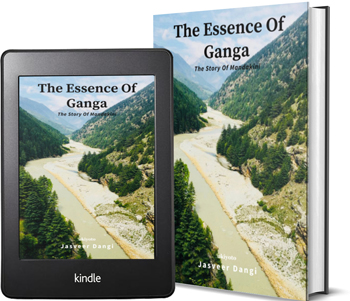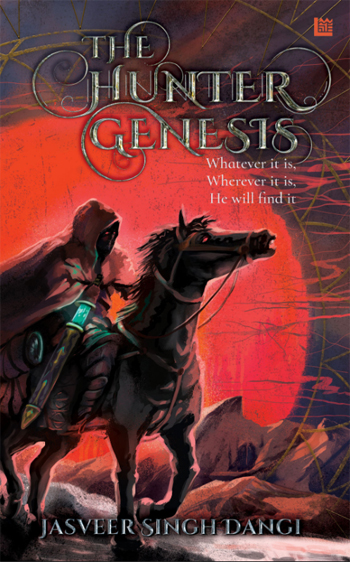 |
||||
 |
||||
 |
||||
 |
|||
 |
|||
 |
||||
 |
||||
Interview with Jasveer Singh Dangi

Bio
Jasveer Singh Dangi is an author, podcast host, behavioural trainer, and award-winning health and safety professional based in Canada. He started writing in 2018 with his childhood memoir,Version One and a Half (Version 1 ½). Since then, he has published a total of eight books and co-authored two.
Though he calls himself an accidental author, his books have been well-received and he, too, has received many accolades for his writings.
-
Author of the Year in Fiction and Non-Fiction category by Ukiyoto Publishing for Ensemble – A collection of short stories and essays.
-
Rated as one of the 10 Indian Authors Redefining Modern Literature by Kathmandu Tribune in January, 2020.
-
Recognized by Ne8X with Sahitya Kosh Samman Award in Literature.
-
In 2018, he was awarded by IISSM for his contributions towards the Health and Safety Training domain.
-
In 2019, Literature Light recognized him as one of the top 100 debut authors for his debut book, Version One and a Half (Version 1 ½).
-
He was named as the "Author of the Fest" at the Writing Wizards Fest 2020 for his book, Double One Zero (110) - Out of the Shadows. The Writing Wizards Fest is an initiative by The Twilight of Poem (www.twilightofpoem.in).
Jasveer loves the outdoors and is a big movie buff, which is quite evident given the use of quotes and songs from movies at strategic places in all his books. He is an avid observer of his surroundings and uses characters and instances from everyday situations for his stories.
His works include
- The Essence of Ganga – The Story of Mandakini
- Ensemble – A collection of short stories and essays
- The Incredible Mr. Sweets – A coming-of-age story of an ex-con who finds his calling in life through music
- Shahenshah – The Story of Shrenik Shah, the Cancer Conqueror
- The Metro-Maniac Chronicles - Through the eyes of an Obsessive-Compulsive Metro-Maniac
- Double One Zero (110) - Out of the Shadows
- Diary from Heaven - Confessions of an Eternal Junkie
- Version One and a Half (Version 1 ½) - A glimpse of India in the ‘80s
- Concealed Words (Co-Author)
- Life – A Culmination of Stories (Co-Author)
- The Hunter Genesis
He also shares his thoughts on StoryMirror, Medium, Merrative, TheCeylonVoice, #jasveersinghdangi (Instagram account and his Facebook page). He also hosts a podcast, interviewing authors and other professionals on his Web site.
Interview
What first got you into writing?
I was never an avid reader, so when my family got to know that I was about to publish a book, they were all surprised. I am an accidental writer because it all started with simple journaling, and journaling is what led to my first book, Version One and a Half (Version 1 ½) in 2018.
My first book is nothing but a collection of childhood memories that I had journalled in my diary over the years. Journaling started as a way to self-introspect and a possible way to manage stress, turned out into something which is now passion.
Some writers have trouble shifting from fiction to nonfiction, but you seem to do so fluidly. How do you do that?
For me, storytelling comes easy. It’s like breathing, so it really doesn’t matter if I am writing a fiction or a nonfiction story. My approach to both is same.
What are your writing goals?
I don’t write with specific goals. Once I start writing my stories can go anywhere and sometimes the story comes out with a totally different outcome from what I had initially intended. I go with the flow of thoughts.
What is one of the things you are most thankful for as a writer?
There are a couple of things that I am thankful for as a writer. As a writer I can write what I like and I don’t have to write as per someone else’s convenience, not the publisher, not the marketing team. Writing let’s me pour my heart out. I can drain out the negativity inside of me using writing.
What's the most interesting book you've ever read?
Chalkline by Jane Mitchell
What book are you currently reading?
War of Lanka by Amish
Who are your favorite authors?
Chetan Bhagat, Jane Mitchell, Devdutt Pattanaik
What would your 8-year-old self think and say about you today?
I can imagine the 8-year-old me probably looking at the present me angrily and saying, "Thou too Brutus?" Lol …. The 8-year-old me aspired to be a fighter pilot and never in a million years did I ever think that I would turn out to be an author. On a serious note, the 8 year old will definitely be surprised seeing how things have turned out.
What do you like to do when you are not writing?
I am a movie freak, so I love binge watching when I am not writing. I love the outdoors, so I love to explore in my spare time.
Tell us about your latest book. What do you hope readers take away from it?
My latest book, The Essence of Ganga – The Story of Mandakini, is a non-fiction story.
It chronicles the amazing journey of Mandakini Pawar, a healthcare professional from India. I have narrated Mandakini’s journey with spiritualism at the helm and river Ganga as the anchor point. Mandakini is another name for river Ganga in Sanskrit. The book chronicles Mandakini’s spiritual journey and how her unparalleled belief in the universe has impacted her life positively. The biggest message that I wanted to spread through this book is that Spiritualism is not just limited to one religion or one country or region. It’s all about belief and you can practice spiritualism wherever you are.
Who is the perfect reader for your book? (Please do not say "everyone.")
Anyone who wants to be inspired.
What inspired the idea for the story?
Mandakini is a very simple person and writing a book about her own life was the last thing she ever thought but during one her discussion with Ravindra Dabiru (A common acquaintance who is lovingly known as RK), they both discussed about the possibility of a book about her life. It took some convincing, but RK was finally able to get her to speak with me and rest is history.
How did you come up with the title for your book?
Mandakini is another name for river Ganga in Sanskrit and throughout her journey, Mandakini herself has always been mystified by river Ganga.
Give us an insight into your main character. What does he/she do that is so special?
Mandakini Pawar is a healthcare professional from India, and she pioneered the usage of The Baldrige performance excellence framework in the Indian healthcare sector. Today, she is one of the foremost experts in the field and she has dedicated her life to providing essential healthcare services and training people in remote corners of India to be self-sustainable.
What is the most important thing that people do not know about your subject/genre that they need to know?
Spiritualism is often confused to be part of the Hindu religion but contrary to this belief, spiritualism can be practiced by anyone, anywhere.
Please share a short excerpt from your book.
My connection with river Ganga or Ganges has been there ever since I was born because Mandakini is another name for Ganga. Jahnavi, Gange, Shubhra, Sapteshwari, Nikita, Bhagirathi, Alaknanda, Vishnupadi, and Mandakini is how the river Ganga is referred to in Hindu scriptures and books. Hence, I have always had this fascination for river Ganga.
Back when I was a kid, vacations were not like the kids enjoy these days. We always went for holidays to one of our relatives’ house, in cities and also in villages and that was fun because we got to meet our cousins, but now kids want to go to fancy and exotic places for holidays. No longer are they content with going to an aunt’s or an uncle’s home for a vacation. One of my fondest summer vacation memories was staying at my Massi’s (Aunts) place. I was born here, and this was my mother’s native place. It is called Hangeshwar. Here we have an ancient temple of Lord Shiva. It is believed that in August (Shraavana), every Monday inside the Hangeshwar temple, round shape pindis of rice takes shape automatically. There is no explanation for this phenomenon, and devotees from across India line up during this time to witness this act of divinity. I remember visiting the temple every time I came this place. It was here that my mother and aunt grew up. I was born in a place that has a deep connection to Lord Shiva, and now, I live in a city that is considered his abode, Rishikesh.
Was coming to Rishikesh a way of connecting all the dots?
My aunt had two sons, but she didn't have a daughter, so she would pamper me with goodies and lots of love whenever I stayed at her house. I would always tell her that I wanted to go to the Himalayas someday. Because of some unknown reasons, this was something I had always wanted to do. I wanted to go to the hills and enjoy nature, mountains, jungles, and snow. Above all, I wanted to personally witness river Ganga's magic. Ever since I began to understand the world around me, I was told that my name meant Ganga, and it made me curious about the river itself.
“But we don't know anybody over there, so how would we go there? And where would we stay?” My aunt would always ask me whenever I mentioned about going to the Himalayas, and my young mind would take her question very seriously.
“Indeed, I don’t know anyone there,” I thought as a younger me looked at the photograph of the snow-capped Himalayas in my textbook. Anyways, life happened, and here I am, living in Rishikesh, in the foothills of Himalayas, and narrating this piece to Jasveer via video conferencing.
Though Jasveer now lives in Canada, he has always been in love with the mountains here in India, and when RK mentioned that he had to write a story about someone who lived in Rishikesh, Jasveer was instantly drawn to the story. He, it seems, shares the same sentiments as I have for this mystical place. Hopefully, Jasveer can come to India and to Rishikesh while writing this book very soon.
When I came here for the first time, I knew this was a different place altogether. I still remember the sheer energy that I felt the first time I came here. Rishikesh is referred to as Dev Bhoomi (the land of God) in Hindu scriptures, and they say that every Hindu God, King and Rishi would come to this place once in their lifetime for sure. It is as if this place calls you, and you will feel restless until you visit the site. The moment you reach Rishikesh, the divinity, the calmness, and peace you experience is nothing short of a miracle.
When I reached this place, I felt as if everything I did in the past twenty years was simply a preparation for this moment. It was as if my journey was to culminate here right at this moment. The experience was so enriching that I am lost for words describing this experience.I have always been an avid reader, and no matter how busy I was, I would always take time out to read. My favourite genre is Hindu scriptures because the Hindu culture is so ancient and rich that you will find answers to modern problems in Vedas, Puran’s and Granth’s. The Hindu scriptures have been translated into many languages worldwide, and I would suggest everyone read these once in their lifetime. Reading Hindu scriptures fueled my obsession with the Himalayas and Rishikesh because the essence of Hindu civilisation lies in the Himalayas. Many revered yogis, king’s and warriors have frequented this part of the world searching for peace, mysticism, and supreme power. Many people have lived in these hills, searching for solace and reaching closer to God. Himalayas and Rishikesh, in particular, have been defined as the gateway to God’s in Hindu scriptures.
Geographically too, Rishikesh is the gateway to the majestic Himalayas because it is in the foothills.
This place is like a magic mirror that reveals your true self. You get to know about yourself when you visit Rishikesh. It’s like a doorway to your own self. If you feel lost or confused and can’t find answers, visit Rishikesh and spend some time with nature and Triveni Ghat at Ganga here, the same way yogis, kings and warriors have done for thousands of years. I could connect the dots and felt precisely what the yogis felt when they documented their experiences in Hindu Vedas, Puranas and Granths. The entire experience is enriching and life-altering, and I believe that you can explore yourself and find the focus in your life if you come to Rishikesh.Fun fact: I have been told that I can become the official brand ambassador of Rishikesh, given the fact that I implore everyone to come here at least once.
“The experience here is like the pinch of the salt trying to reach the depth of the ocean.” Extract from the Bhagwat Geeta. It is as if you become part of the entire universe when you come to Rishikesh. If you come here with an open mind, leaving all your thoughts behind, I can guarantee that you will return with a new and positive set of thoughts.
This whole experience has been so divine that I wanted Jasveer to start my story with this episode of my life.
What role does research play in your writing? Do you have any research resources you recommend?
Research is of paramount importance even for a fiction stories especially if it refers to real-life things. For example, if you are referring to a particular time period or a real life person then getting at least the basic things from the time period becomes very important. Internet is full of resources that provide information. All we need to do is use the correct key words and the information is readily available online.
Do you aim for a set number of words/pages per day? Do you write every day, five days a week …?
No, I am not a disciplined writer. I write whenever I get the idea.
Do you have an area set aside for writing?
No, I can practically write anywhere.
Do you have any name-choosing resources you recommend?
All said and done, marketing is the key part of the entire book writing process and a good way to market your book is to choose a unique, perhaps quirky title. All my books have catchy titles which most of the time stand out. In most of the cases, I have always come out with the name after I finished the story.
What software do you use to write? Or do you prefer to write longhand or dictate your work? Why?
I use Microsoft Word to write.
How long (on average) does it take you to write a book?
It depends upon the subject. Sometimes it takes a few months to write while my action-adventure story, The Hunter Genesis, took me two years to complete.
How do you celebrate when you finish writing a book?
There’s no greater joy for an author to hold the physical copy of his or her book and that to me is the biggest celebration for an author.
In your opinion, what's the measure of a successful writer?
The greatest measure of a successful writer is when you are satisfied with your own work. The day I feel that I have created a masterpiece is the day I will consider myself to be a successful writers.
What is the best advice you could give other writers about writing?
Keep going, don’t stop and if you are afraid of starting then take that first step now.
What's your favorite and least favorite part of publishing?
Favorite part is to hold the first physical copy of the book and least favorite is the wait time after you have sent your manuscript to the publisher.
What is the best advice you could give other writers about publishing?
Self-publishing is the way to go.
How do you market or promote your books (e.g. social media, e-mail, blog tours, etc.)?
I use social media myself and I also hire professionals to market my books online.
What strategies have demonstrated the most success for you?
Social media marketing, if done rightly and timely, can certainly go a long way in creating awareness about the book.
What is your best marketing tip?
Spend less on publishing and more editing and then marketing the book.

Writing Advice: Writing a Story
Writing Advice: Choosing Your Narrative
Author Interview: Nicolas Lemieux
Author Interview: Clay Vermulm
Author Interview: Rune S. Nielsen
Author Interview: Uchechi Theresa Ezeuko
Author Interview: David Andrew Trotter


